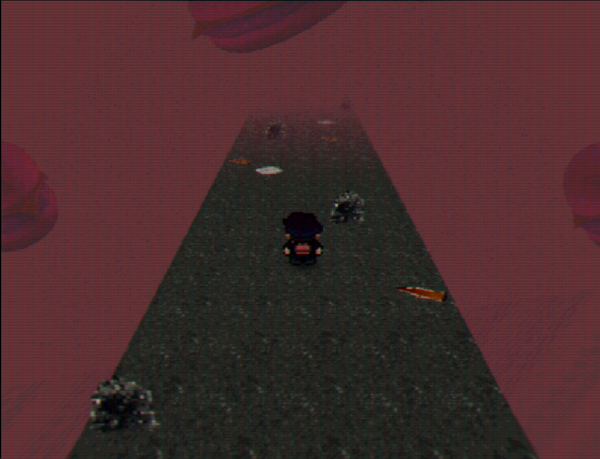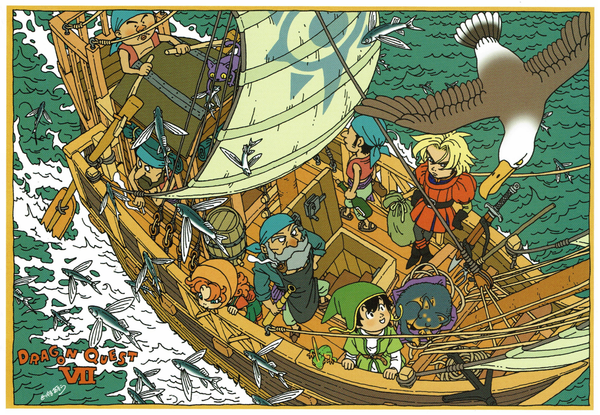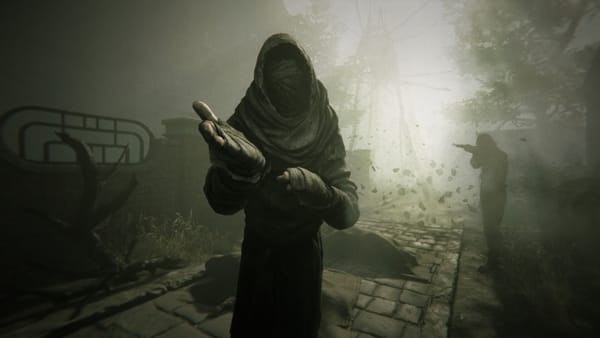These Are The Last Good Days of Your Life
Final Fantasy XV has two compartments: the shadow-life of work and the moments where real life blooms.

There is a country road I walk when the mood strikes me. It passes cornfields and pastures, small farms moonlighting as agritourism. You can hear frogs in the irrigation canals by the side of the road, above which dragonflies dance and mate. And look wearily at forming clouds of mosquitos. Cyclists pedal at ease in twos and threes, runners jog in their reflective vests, occasionally a car speeds by. The cicadas serenade them all. Roads like this one have weaved spindly networks out of rural centers that, 60 years ago, were so foreign to each other that a boy calling on a girl would have to give a full accounting of his pedigree, lest he be thrown out with considerably less skin on his behind. But today they are one town, a not quite rural conglomeration that provides a fraction of Turin's workforce.
From where I stand you can see the Alps on most days with startling clarity, but they are too distant to tower. No, the main service they provide is the sunset. When they hide the sun coming down behind them, in summer you can catch its light, a burnished gold, giving such form and volume to the clouds that they begin to tower and appear to glow.
One day I sat in the grass by the side of that befrogged road. I felt the wind on my body and the heat of the sun beating down on the back of my neck and warming me throughout, and the thought formed in me that I'd like a drink. I couldn't afford it. Not that the money didn't exist, but there were necessities the money was tied up in. I felt squeezed between the refreshment of my mortal body and the refreshment of payments.
And I felt that my true life lay there in the sun, in the grass. Where I could touch the world with my hands, where I was as vulnerable as anything, caught in the envelope of these things, to which I belonged in the way a strand of hair belongs to me, under my power, and yet it’s me. I have a phantom sense that I am some infinitesimal part of this planet that I touch, that feeds me, that will bear my remains. And I feel deep within me that it is in accordance with my nature to love this moment and all moments such as this. And to chafe at its opposite.
I have another life, too, one of legal liabilities, bureaucracy and duties, bills. It is the life that is rented for the organism to survive, for others have invented for me a monetary obligation to them, and I must do the same. This is a shadow life of false smiles and work place proprieties and many small and large injustices. Most know it from the inside. It is a time when my real life is put on hold, and the real me is partially submerged, so that I may daily ransom myself without going insane.

The compartments of my life brim with the energy I have picked up from failure, success, comfort, from the pleasure of taking a walk, and the stress of not making a payment. Was life meant to be this way? Whatever the answer, I am afraid more and more, and I am more and more withered by the growing awareness that my general moods come from only one of these compartments. And that is a huge imbalance. When I stroll my neighborhood, when I loaf, when I lie down to rest, I am full of the anxieties of the shadow life. But when I tend to the working life, I am not comforted by the peace and joy I felt in sleep and play. And I think: this isn't life, it's just the sadness quo.
Now I am in a car. The past is getting smaller and smaller in the rear-view mirror. I am living, and hating, the best days of my life. I am playing Final Fantasy XV.
I think of XV as a game that makes you wish you knew you were in the good old days before they ended. And that's the implied text of the game, too. For a Final Fantasy acolyte the phrase "good old days" probably means "before 2006", by which time every canonized entry had been released. It's no accident that this period coincides with much of the fanbase's youth. Younger fans might identify more with the MMO XIV, which is experiencing a downturn, or the more controversial XVI.
(Years before XVI invited any skepticism, XV was discussed in similar terms. I recall the game being accused of being too different, an action game, and yet it is guided by the three keys that have always defined Final Fantasy: adventure, humor and heart. And of course a critical fourth ingredient: living in a natural world, that in the 90s, had to be expressed musically, but in 2016 could be rendered through gigabytes of textures. You could count the blades of grass!)
Like many of my generation, I reached the age of reason around the time of 9/11. Even for a young European, this new period of war marked an ominous watershed that gave way to crisis, political decay, and further war. Together with many other stories, moods, and images, classic Final Fantasy lives somewhere in a past that wasn't touched by our present. And that's precisely what makes it critically untouchable even today. Something we can't say about newer entries, which like our history, seem to have taken a wrong turn.

Like its parent series, XV also has two compartments. Its first is a predictable open world. Later, it transitions to a linear second part, much of which is literally on rails. We can call this the closed world. The asymmetry is fairly satisfying, not least of which because the game is able to cantilever a wisp of the open section's optimism into the closed world's darkness, sparking real interplay between what we know the world can be, and what the world has actually become. It seems to say: that free life is done, it is moved over to a place that shrinks in the rear view mirror.
XV starts as a road trip. Its early chapters are more preoccupied with the wonder of freely roaming a Final Fantasy with exquisite production value and a soundtrack by Yoko Shimomura. Reality intrudes on the fantasy fairly soon, however, and launches a story that, in full accordance with its open world structure, expects you to swing between the leisure comforts of fishing, racing and hunting, and the increasingly depressing outlook of Prince Noctis' royal duty.
What does it play like? The game is modern fantasy. That means characters wear suits, use smart phones, and drive cars, but also commune with the divine and the spirits of their ancestors. A cosmic malady is turning the planet's life into monsters, and day into night. An evil empire has conquered your capital. As the scion of your kingdom, you have the power and the duty to stop this. To do this, you must collect the legendary arms of your forebears and earn the blessings of the gods.
The player controls Prince Noctis. Noctis attacks with one button, and defends with another. He can combo his attacks with those of his three bodyguards and best friends. He can also cast spells based on the elemental energy he draws from nature. Executing Noctis' iconic moves or defending drains mana. When mana runs out, you must briefly engage a recharge state that will restore you to battle readiness while your friends pick up the slack. In any other game, backing away from a foe is a defensive posture. In XV, recovering health and mana requires activating a specific state, say, hiding behind a boulder or hanging from a cliff. This constant flow between aggressive and defensive posturing is a symbol of the transition between action and rest.

When you're not fighting you drive the Regalia, the royal car, on the national roads. You ride Chocobos through the countryside. You camp, cook, fish, race, hunt dangerous monsters, and talk with a cast of non playable characters. XV is a game in which the protagonist seeks relief in both the natural world and the entertainments that people organize inside of it, and this takes place in the open segment.
For my money, the best open world game of all time is Shadow of the Colossus. Fairly brief, almost empty, its dollar/hour ratio would be catastrophic. But there it is, isn't it. It is not empty. It contains the world: the soil, the clouds, the atmosphere. A living land tinged with the joy, yearning and desperation of its wandering protagonist. In which the low saturation color and the whisper of the wind and the beat of the hooves echo on in the nothingness that, impressionistically, is your own soul.
XV lies on the SotC end of the spectrum. A fight is never far away, but you get a sense that the space is also shared by living things. It is traveled. It is farmed. It is fought over. It is a place whose natural beauty brings healing to Noctis. As the player becomes stronger more and more of the world opens up. The closer and more free the connection between Noctis and the natural world, the happier he is.
It is this play, rather than any great cinematic moment, which reveals Noctis to be an unsteady but loveable dork who tries to present himself as a serious hero, but who would rather go fishing than warring. There is a suite of side activities, including taking pictures with your companion, and apparently social media manager, Prompto. When you decide whether to drive the Regalia yourself or hand the keys to a pal, it triggers a playful social situation with your friends. If you convert your car into a monster truck and drive into a fight with a giant turtle, you discover the real Noctis.

If the game produces a funny bug, it's likewise a moment of albeit unintended relief. Why not celebrate it? When the closed world arrives, these entertainments are taken away. All that's left is dry dungeoneering. The alternative is a samey underground whose every fight plays the same way and where you get lost in its indistinct layout. It is the first Final Fantasy to be so visually spectacular that it doesn't need pre-rendered cinematics, but that gives you so few worthwhile things to do that you can sense the spectacle is wasted.
Feel free to look at this as design failure. But failure that plays favorably into the coming of age theme. History is littered with failure, bad policies and bad policy-making. We live in someone's failure right now, so why should Noctis be spared? XV began life in 2006 as Versus XIII under different leadership, was eventually handed to Hajime Tabata to be transformed, after a nine year grind, into the XV that we know.
The result is a game of two separate lives contending over a person's existence, with one definitively winning in the end. It touches something. For me, the will to live is not a battery, a resource used up and recharged. It is something precious which once tarnished may never be the same again. And yet, sometimes, in order to live, you must betray yourself and become someone else. The true tension at the heart of XV is a person giving up on their dreams to do what is expected of them.
I look at anyone doing a job and I reckon that they love the wind no less than me. The sea, the sky, the unanswerable magnificence of it all. And they, like me, would rather be somewhere else. Still they show up.
When you enter the game's final moments, you must pick a photo you created. Whatever you choose, it will be a fragment of a time that stood between you and what you had to do.
Stop Caring is reader supported and 100% free. Please consider subscribing or making a one-time donation to make more of this possible. All donations on this article go directly to the author.




